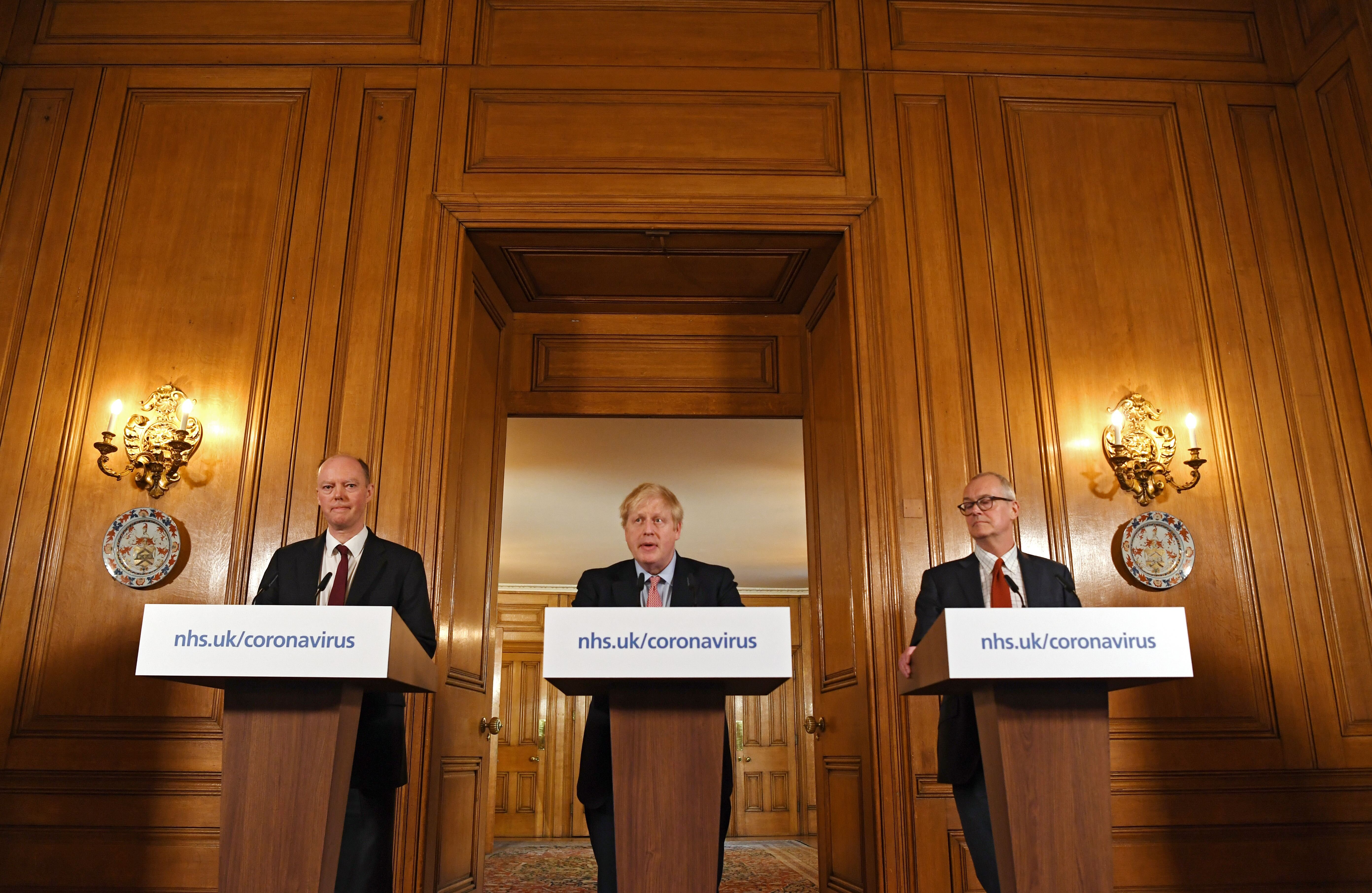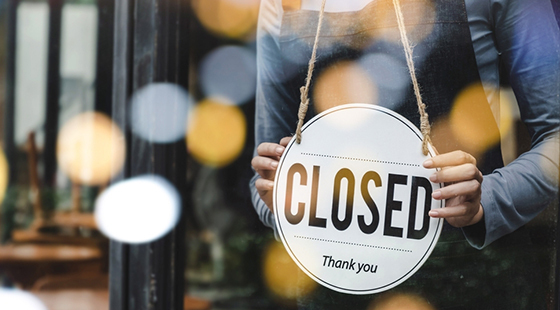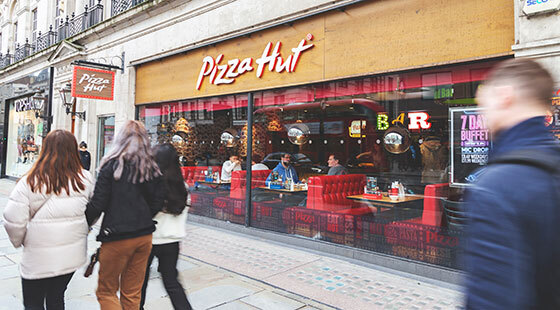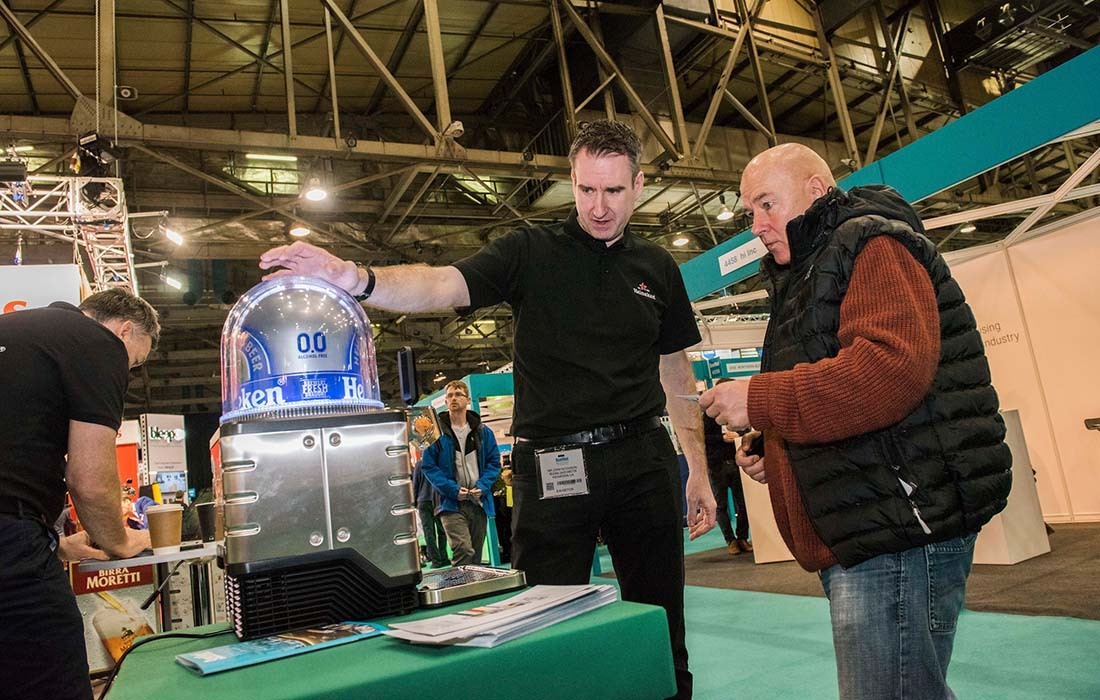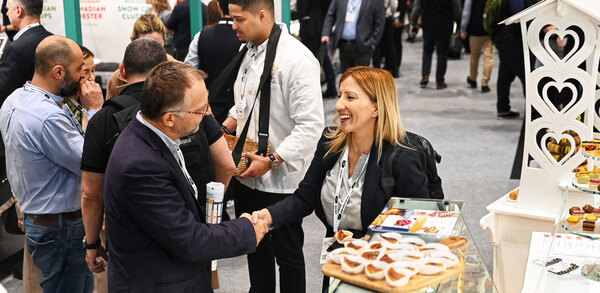Coronavirus: ‘Worst possible’ situation as prime minister tells public to avoid hospitality businesses
Hospitality businesses have been left in the “worst possible situation” after the prime minister advised people to avoid pubs and restaurants but fell short of asking them to close.
This afternoon Boris Johnson advised the public to stop all non-essential travel and contact with others, avoiding "pubs, clubs, theatres and other such social venues".
The situation looked even more dire for the capital with Johnson saying London was "a few weeks" ahead of the rest of the country in reaching the peak of the outbreak and urging residents to take the recommendations particularly seriously and not to visit restaurants and pubs.
Business owners said the situation left them in limbo, unable to file insurance claims without being told by government to close, but facing the prospect of having no customers to serve.
Pied a Terre owner David Moore described it as “the worst possible situation”. Speaking to The Caterer, he said: “What’s the point in opening if you have no customers? The PM needs to come out and tell us to close, even if it’s only for a week.”
UKHospitality CEO Kate Nicholls said: “This is catastrophic for businesses and jobs. The government has effectively shut the hospitality industry without any support, and this announcement will lead to thousands of businesses closing their doors for good, and hundreds of thousands of job losses.
“Over the past few weeks the industry has suffered unprecedented drops in visits and many business are already on their knees. This latest advice leaves the industry in limbo, with no recourse to insurance.
“The government must act now to stop them going under and protect the people’s jobs. These venues play a unique role as community hubs and it’s in all our interests to protect and preserve them so they are still there once we emerge from this crisis.
"We need immediate and far-reaching support from the government, and meaningful business continuity measures.”
Asked if the government would enforce the closure of theatres, pubs and restaurants the prime minister said: "We have the powers if necessary, but I do not believe it will be necessary to use those powers."
He added: "This is going to be a very considerable challenge for businesses big and small and we are going to make sure we do everything we can to give them the liquidity they need, make sure they have time to pay and make sure the whole fiscal policy - tax and spend system - gives businesses the space in which they can come back from this."
Just minutes after the announcement some businesses said they would be closing for the foreseeable future, among them were Peckham Cellars in south London and Grub street food fair in Manchester.
Earlier today Carluccio’s chief executive Mark Jones told The Caterer that the restaurant chain was attempting to negotiate three-month ‘rent holidays’ with its landlords and called on the sector to work together to prevent closures by talking to landlords, local MPs, UKHospitality and government.
Jones urged the government to scrap business rates altogether and gave the example of Denmark, which has told companies that it would cover 75% of employees’ salaries if they promised not to cut staff.
Steve Holmes, chief executive of the Azzurri Group which operates brands including Zizzi, Ask Italian and Coco di Mama, said the government needed to be supporting banks so that they in turn would help landlords by deferring restaurants’ rental payments.
Data captured by Wireless Social Sunday showed that yesterday (15 March) businesses had already seen a 44% fall in footfall compared with the same day last year, with a 28% fall over the last week year-on-year.
“It’s a fairly good proxy for what we’re seeing across the industry right now,” said Holmes.
Both Holmes and Jones said the situation had been too fast-moving for any level of contingency planning.
“We plan everything but every time we come up with a worst-case scenario, it gets worse,” explained Jones. “We don’t want to get through all this to find out that one of the victims was the high street. That could well happen if there isn’t that very dramatic intervention by the government.”
Holmes added: “It’s happening so quickly. 10 days ago we didn’t see any of this coming and what we’re trying to do now is work out how we can pay our wages and key suppliers, and try to mitigate some of our outgoings.
“The government need to intervene. 5% of GDP comes from the hospitality industry and if government don’t intervene, i.e. support the banks to support the landlords to help us, then I think we’ll see lots of job losses and the shape of the casual dining industry will be changed forever.”
Large gatherings and events
Johnson also said emergency workers would no longer be mobilised to support large gatherings of people. Although large gatherings were not prohibited, as was anticipated, the industry is seeing a huge number of meetings and events cancellations.
Sam Hurst, chief executive of Grazing, said the events arm of the business has seen cancellations and postponements “across the board” and the events industry is “really struggling”.
He said: “The Government unveiled a range of measures aimed at helping small businesses in the budget but none of these have yet come to fruition and they need to act fast to roll these out in order to save events businesses, who are already seeing near 100% cancellation rates.”
Terry Waldron, executive director of CH&CO, added that the group was concerned about the effect the cancellation rates will have “on our events business and our people”.
Danny Pecorelli, managing director of Exclusive Collection, speaking to The Caterer on Monday, said: “We have already had some weddings cancelled because of the travel bans and now we have concerned staff and clients but we can only react to what we can react to.
“We’ve got to do what’s right for the country and we’ll all try to get through it. Unless the government give some support [as in Denmark and Germany] there are going to be an awful lot of hospitality businesses going pop – that’s the harsh reality, if you’re marginal anyway.”
Ian Edwards, chief executive of the Celtic Manor Resort and the new International Convention Centre Wales in Newport, has written to first minister of Wales Mark Drakeford asking for immediate measures. He said both venues have lost more than £1m in conference bookings over the last 10 days, and hotel occupancy has plummeted from an average 92% to around 30% in the coming weeks.
Navigating coronavirus: Advice on cashflow and managing costs>>
Best Western ‘will consider turning hotels into temporary hospitals’>>
Picture credit: Shutterstock premier



